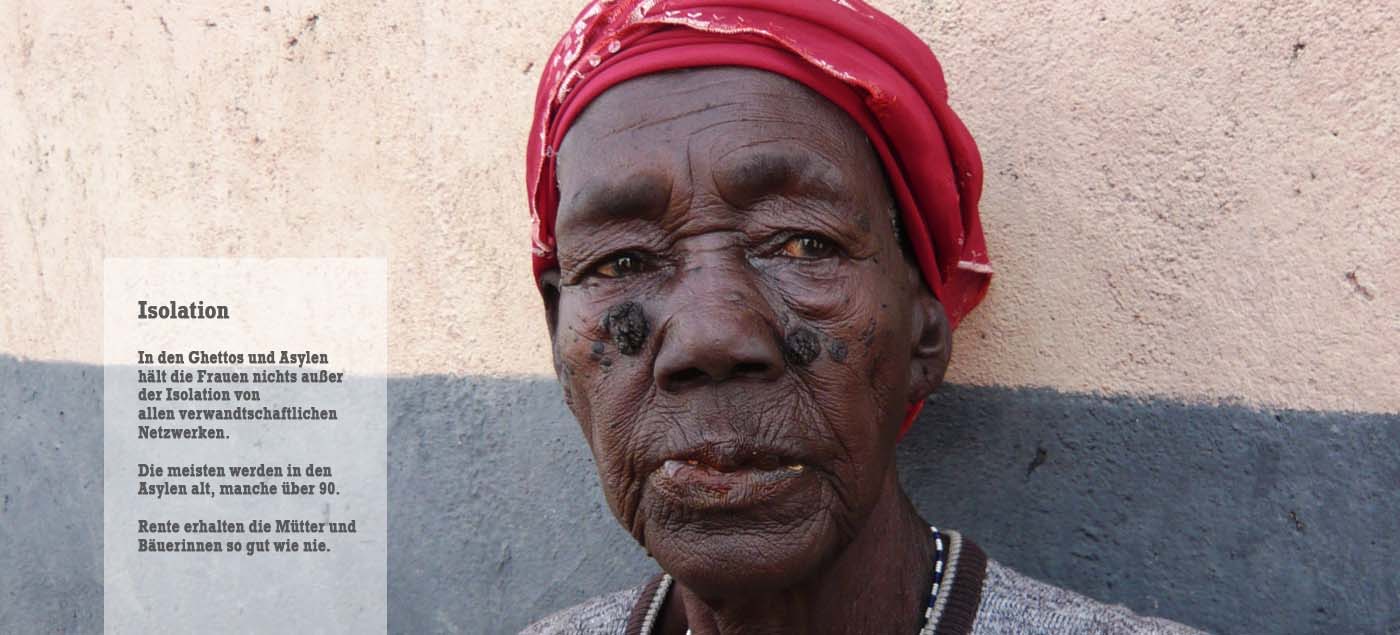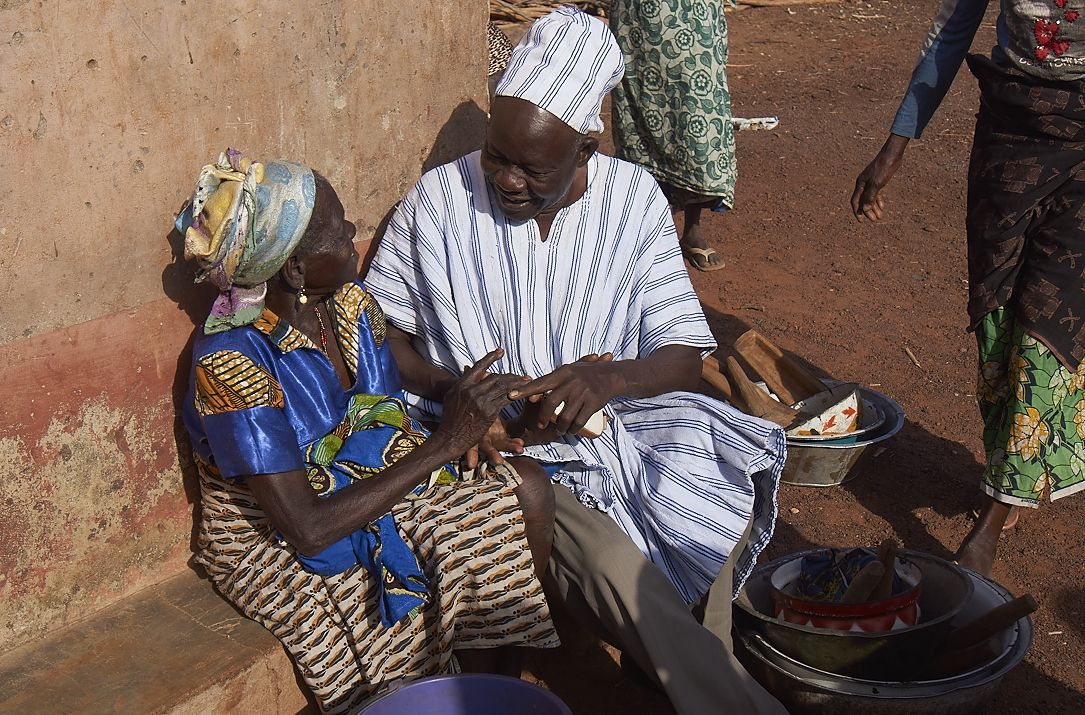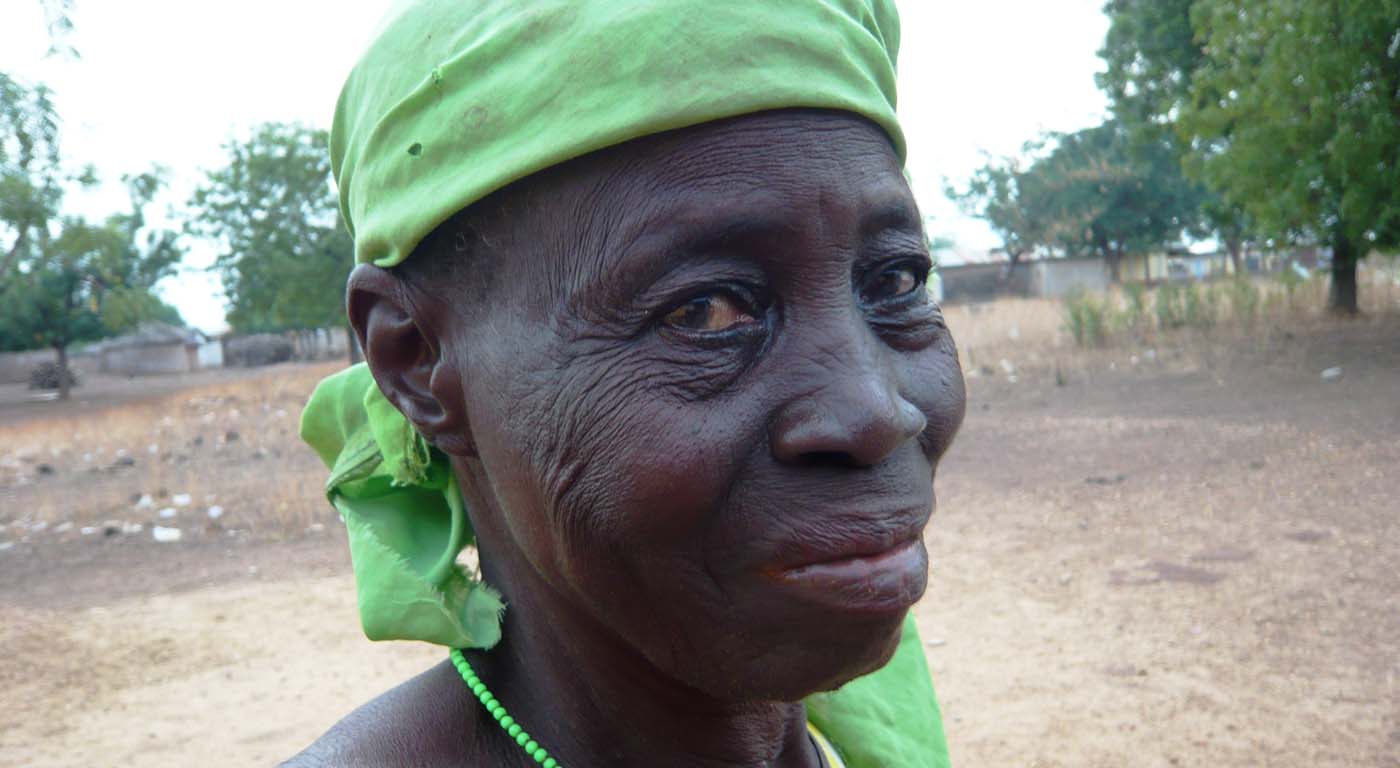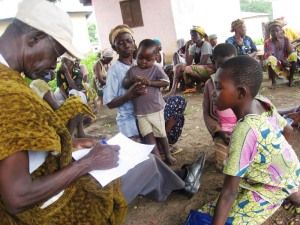
Simon Ngota grew up in Garu in Northern Ghana. He is a native Kusal-speaker, but he is also fluent in English, Mampruli, Dagbanli and some other local languages. Raised in a catholic mission, he is a trained agric engineer. He started social work early and for a long time he trained blind people in agriculture. 1994 he was called to Gambaga to work with witch-hunt victims in a war-ridden Northern Region. In the fifteen years in Gambaga he negotiated more than 400 resettlements of witch-hunt victims. The “Gambaga Outcast-Home Project”, run by Simon Ngota and Gladis Lariba, improved the tolerance of the inhabitants in Gambaga towards the witch-hunt victims.
Simon Ngota is a patient listener and a versed expert of the various cultures in the Ghanaian north. His work brought him to Togo and Burkina Faso, and he travelled most parts of Ghana. His main concern is the health standard of the women in the camp and he always works on improving hygiene, medication and healthcare.
In 2009, he shifted to Gushiegu, where the new-found “Witch-hunt Victims Empowerment Project” (WHVEP) would start working under precarious conditions. With the assistance of the German “Hilfe für Hexenjagdflüchtlinge” and the Danish “Seniors without Borders”, Simon Ngota and his staff reach more than 200 witch-hunt victims in the three camps in Kpatinga, Gushiegu and Nabule.
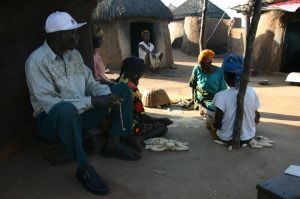
This post is also available in: German
